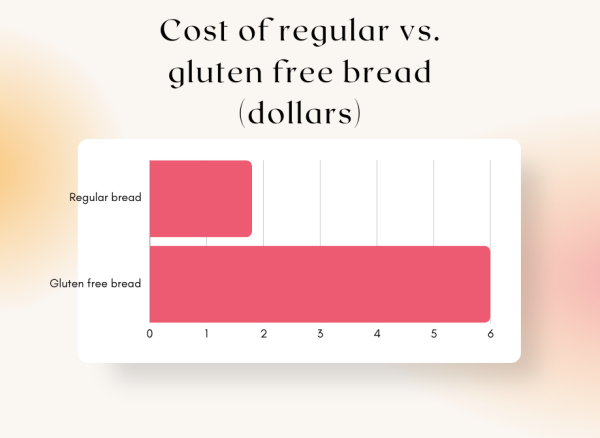Sixteen-year-old, Lydia Davis had never thought much about the food on her plate-until the day she couldn’t. A series of health problems turned her everyday life upside down, leading to a whirlwind of doctor visits and new rules and restrictions.
Foods she once loved were forbidden, birthday parties required careful planning, and even a simple road trip came with risks. Adjusting to life with multiple allergies and intolerances has been challenging for Lydia and her family. It ended up forcing them to rethink routines and maintain constant vigilance. But amid the frustrations, they’ve found small victories in learning to navigate a world full of hidden risks.
“In a way, it has been good because we are finding new, healthier ways to cook,” Mother of Davis said.
“Having dietary restrictions is about more than just food,” Davis said. “It’s about the loss of spontaneity, the constant fear around food, and the separation from others.”
Lydia Davis (10) has multiple intolerances, including a high sensitivity to gluten, eggs, dairy, and more. Even going as far as to not being able to touch gluten without a reaction. Davis has to be hyper-aware of the food around her.
“sometimes I’ll go to restaurants with my friends, but I just have to sit there and watch because I can’t eat anything there,” Davis said.
However, there are some good parts to these obstacles.
“We are also eating less fast food because Lydia can’t have it, and finding better options like sushi or salads,” Davis mother said.
Oftentimes this makes Davis feel isolated and feeling left out, due to the forced exclusion. So many people including Davis have to go through things like this every day. iCureCeliac did a study showing the connections between a person having dietary restrictions and also being diagnosed with mental health conditions like depression and anxiety.
“It’s disappointing when other people get to try new foods, but I’m limited to the foods that I know are safe, which is small,” Davis said.
Because Davis has to always be on her toes around foods, there is a constant fear around getting sick from cross contamination.
“I still get nervous even when I go to restaurants that I know are allergen friendly,” Davis said. “If I get sick from cross contamination, I can be sick for up to 4 days.”
The Celiac Disease Foundation reported that almost 60% of iCureCeliac participants report that they have been accidentally exposed to gluten allergens.
“No matter how careful I am about cross contamination, it just seems to be inevitable and impossible to avoid,” Davis said.
Davis stated that she is an avid baker and loves to make cookies.
“I love to decorate cookies, but it can become difficult because I have to wear gloves to prevent eczema breakouts on my hands,” Davis said.
Davis sensitivities are so high that if she so much as touches gluten, there can be severe reactions to her hands.

Davis also says that good gluten free products like bread are hard to come by. Davis primarily shops at whole foods, where she says they have the most options.
“My weekly grocery bill is a lot higher than a person who doesn’t have any restrictions. Just for snacks alone can be over $150,” Davis said.
According to the Gluten Free Cooking School, on average, gluten free foods are 242% more expensive than standard foods.
“It’s been really hard to adjust because where we live is not very friendly to allergies and sensitivities,” Davis said.



